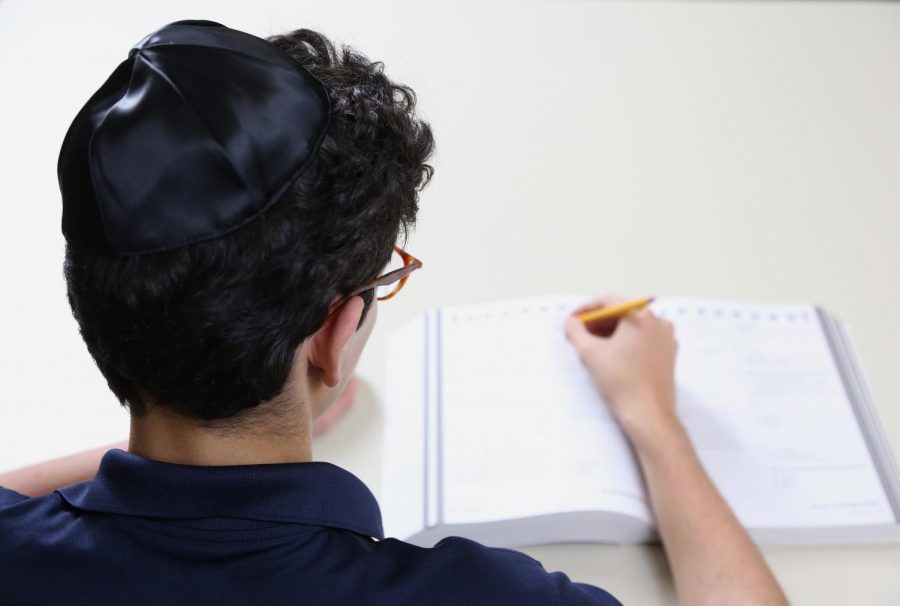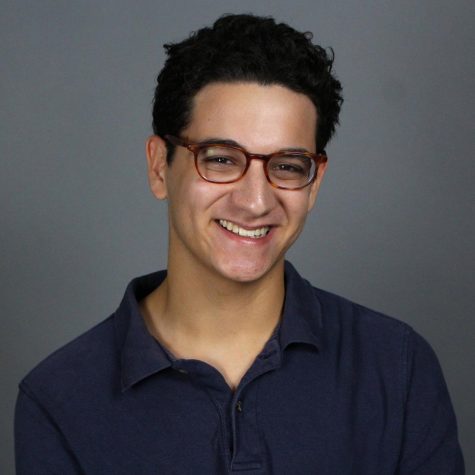ACT holds test on Yom Kippur, inconveniences Jewish community
On Sept. 30, Jewish students had to make a decision between taking the ACT and observing Yom Kippur.
October 24, 2017
On the last Saturday in Sept., I had to make a decision between my faith and my future.
I was originally scheduled to take the ACT on Sept. 9, but due to Hurricane Harvey, the test was moved to Sept. 30, the day of Yom Kippur.
My family was furious. Other members of the Jewish community were furious as well. Jews from around Houston called the ACT to object. For seniors, this test was their last chance to raise their scores, but having it on Yom Kippur put Jewish seniors at a disadvantage. Some even reached out to the Anti-Defamation League. Despite their efforts, the test remained scheduled for the holiest day on the Jewish calendar.
After a long conversation with my family, we decided that I should take the test and forgo the most important day of the year. So, on Sept. 29, I went to evening services for an insufficient 45 minutes and went to bed early in preparation for the test.
One of the facets of Yom Kippur is fasting. In order to reconcile with G-d, Jewish people do not eat breakfast or lunch on Yom Kippur. We must forgo some of the pleasures of daily life as a way of practicing self-denial, another tenet of the holiday. We have a massive “break the fast” dinner the night of Yom Kippur after 24 hours of no food.
I woke up on the 30th to a massive breakfast of eggs, toast and juice to prepare me for my exhausting test while my family wouldn’t be able to eat until dinner. I felt like a traitor to them, my religion and G-d.
On Yom Kippur, I did not attend services. I did not fast. I did not hear the sound of the shofar marking the end of the 10-day period of atonement. I did not pray to be written in the Book of Life, and I did not apologize to G-d for my transgressions throughout the year. The ACT has forced Jewish people into a lose-lose situation. When will they atone?
More concerning than the ACT’s decision is the message underlying it. By scheduling a test on Yom Kippur, the ACT displayed a lack of respect not just for the holiday, but for Judaism as a whole. They have ignored, inconvenienced and infuriated an entire religion.
Unfortunately, the ACT board is far from the only group to hurt Judaism. On Oct. 13, President Trump called for a end to the “attacks on Judeo-Christian values.” He then stated that for the upcoming holiday season, “We’re saying Merry Christmas again.”
Here is yet another example of delegitimizing Judaism. President Trump said “Judeo” to appear more inclusive, but that is a front. When Trump says that only Christmas is accepted, (Heaven forbid someone says “Happy Holidays” or “Happy Hanukkah!”), Judaism is undermined. President Trump is the most powerful man in the nation, if not the world. When he diminishes the credibility of Judaism as a religion, others will surely follow suit. Truly, the struggle to be realized and accepted is known by every Jewish American.
Imagine having the ACT on Christmas. The SAT on Easter Sunday. An AP Exam on Thanksgiving. You would be irate. Your parents would protest and complain; how could they have a test on such an important holiday? How hypothetically inconsiderate of them!
It’s easy to forget about this issue if you aren’t Jewish. It is important to note, however, that nothing is stopping the ACT from scheduling tests on other holidays throughout the year.






